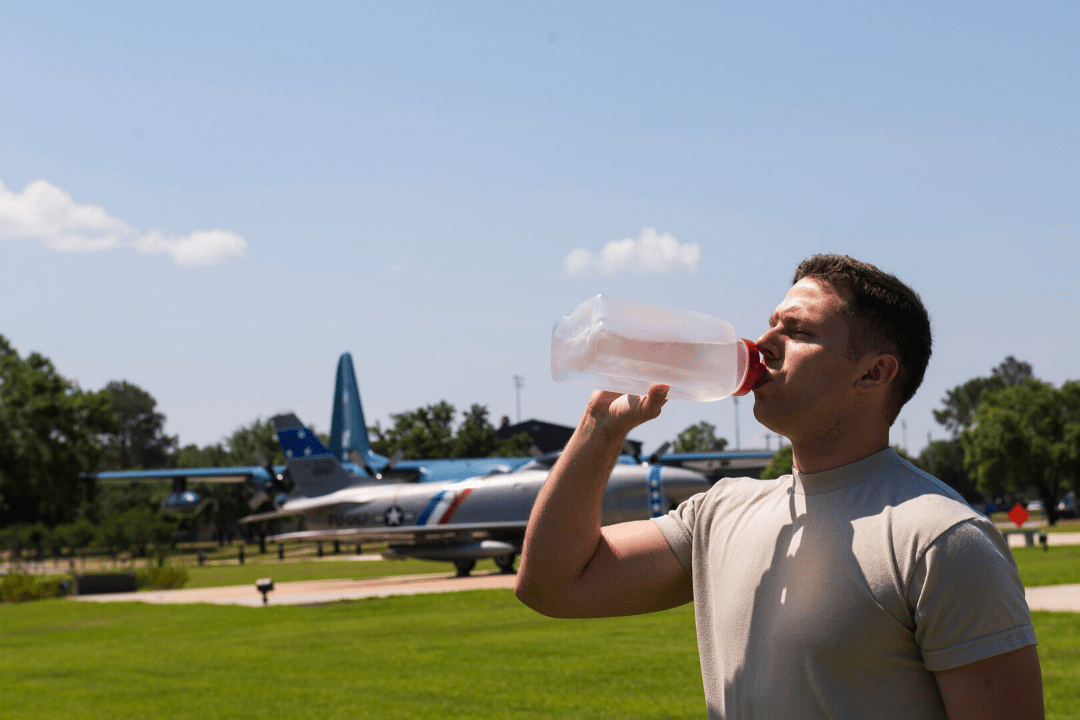What to do the morning before your test day
Test days are an essential part of military life. They confirm that you are ready to do the job and that your training has produced the required results. Test days can also be nerve racking! Before starting, you'll catch yourself wondering whether you’ll pass, or whether you are about to fail and make a fool of yourself. Don’t worry – almost everyone else in your group feels the same way!
Make test day go as smoothly and successfully as possible by following this step-by-step guide.
-
Get up early
Nothing will knock your confidence on test day like waking up late and having to rush. Rushing increases anxiety and being anxious wastes precious energy. Getting up 30 minutes earlier than necessary might seem like an odd way to save energy but, really, it will. Use the extra time to work through the rest of your pre-test routine without having to hurry.
-
Check your kit
Make sure you have everything you need for your test day. It’s all too easy, as nerves set in, to forget something important. Check and recheck your equipment so that you are 100% confident you have everything you need. Ideally, this should have been done last night, but it can be reassuring to confirm that you have everything you need and it’s where it’s supposed to be.
-
Breakfast like a champ
Providing you got up early enough, you should have plenty of time for a healthy, energizing breakfast. Don’t force-feed yourself but do make sure you eat enough to get you through the challenges of the day.
This is also not the time to try any new breakfast foods or an untested eating regimen. Instead, stick with foods that you know you tolerate well. Nerves may mean you don't feel hungry, so expect to eat less than usual. Make sure you eat something though so that you have at least some fuel in the tank.
Good options include breakfast cereal, toast and jelly, and oatmeal. Eggs, bacon, and sausage are okay but remember, your body needs carbs for energy rather than protein and fat.
-
Hydrate
Your body needs water as well as calories to perform at its best. You should already be well-hydrated, having hopefully consumed plenty of water over the past 72 hours. However, nervous peeing may mean those levels need topping up. Don't drink so much water your bladder is uncomfortably full but do sip enough that you don’t have a dry mouth.
-
Warm-up
Your instructors will probably take you through an appropriate warm-up, but there is no harm in doing your own warm-up in advance of theirs. This will use up any nervous energy you have, keeping you occupied, and ensuring you are ready for whatever the day holds. Don’t overdo it – this is not a workout. Warm-up, and don’t wear yourself out.
-
Try to relax
Easier said than done on test day but do your best to stay frosty so that you don’t waste valuable energy. Take some deep breaths, chat to one of the other test subjects, or do anything else that will allow you to relax and reduce anxiety. It’s okay to be a little nervous – it shows you are taking the test seriously and care about the result – but don’t let uncontrolled nerves interfere with your performance. Now is a good time to hit the head for that final panic pee.
-
Try some positive visualization
While you wait to begin, take a moment to visualize what you are about to do. See yourself completing the tests with proper technique and relative ease. Remind yourself that you have trained hard and are well-prepared. You can do this! Get yourself pumped up so that when it's time to start, you are 100% ready to give it your all. Remember too; if it were easy, everyone would do it!
............................................................
The Army Combat Fitness test has changed. Moving away from just the standard push-ups and pull-ups they have added in more exercises to make sure you are a jack of all trades.
We have a free 6-week training plan with everything you need to know to prepare you physically for these new standards. You can download our 6 week ACFT guide.

